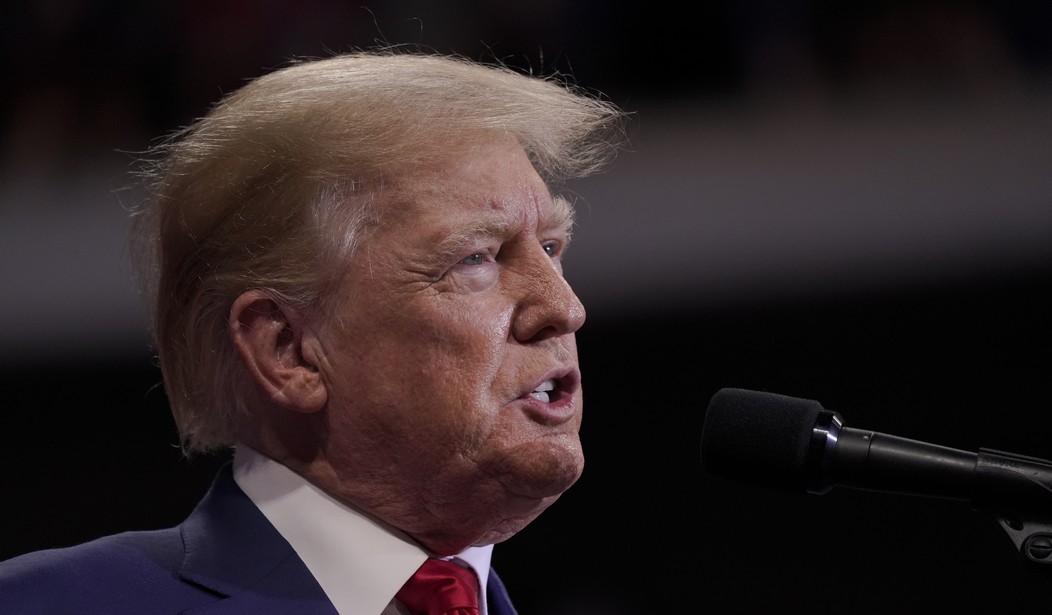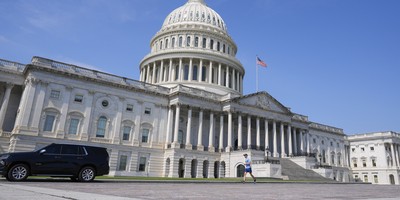Think back five years to the frenzy of news reporting and commentary over what was called Trump-Russia "collusion" -- the allegation that the 2016 Trump campaign conspired with Russia to fix the presidential election. Most of the coverage, and especially the commentary, seemed predicated on the belief that collusion did, in fact, take place. But later, in one of history's great never minds, the extensive investigation of special counsel Robert Mueller was unable to establish that Trump-Russia collusion -- prosecutors called it conspiracy or coordination -- ever occurred at all. The Mueller team spent years investigating an alleged crime and in the end concluded they could not establish that the alleged crime even took place, much less who did it.
The striking feature of the media's collusion talkathon in 2017 and 2018 was that much of it was based on secret evidence. There were super-secret recordings of Michael Flynn, President Donald Trump's first national security adviser, talking to the Russians. There was secret evidence gathered by a secret FBI investigation. There was secret testimony to Mueller's prosecutors. And there was, famously, a secret dossier of Trump allegations. (Unlike the other examples, the dossier was actually revealed early in the investigation, which led fair-minded observers to suspect, correctly, that it was a fraud.)
Why re-tell that story? Because there is a new special counsel investigation of Trump, now a candidate for the 2024 Republican presidential nomination. Attorney General Merrick Garland instructed the new counsel, Jack Smith, to investigate two matters: Trump's alleged role in inciting the Jan. 6 riot and the "investigation involving classified documents and other presidential records, as well as the possible obstruction of that investigation." What is notable about the second topic, the documents investigation, is how much, like earlier probes, it is based on secret evidence.
There is no doubt that Trump, when he left the White House, kept a significant number of documents from his presidential years. Why did he do so? The Washington Post recently reported that Justice Department prosecutors have concluded that Trump's motive "was largely his ego and a desire to hold on to the materials as trophies or mementos." The Biden Justice Department had looked hard for some kind of nefarious motive behind Trump's actions and all it could come up with, if the Post is correct, was a desire for high-end souvenirs.
Recommended
Nevertheless, Garland appointed a special counsel to investigate. Why? This is how Garland explained it: "Based on recent developments, including the former president's announcement that he is a candidate for president in the next election, and the sitting president's stated intention to be a candidate as well, I have concluded that it is in the public interest to appoint a special counsel."
It is in the "public interest." This is not just a legal case, Garland was saying, but one in which the public has a significant interest, and therefore one the DOJ must treat differently from other cases. The department must take steps to ensure public confidence in the investigation.
The heart of the documents case appears to be allegations that Trump improperly handled classified documents. But, of course, there are different degrees of classification, and beyond that, there is a widespread consensus that the government classifies too many documents to begin with. So to make Trump's offense, his memento-collecting, sound as serious as possible, there have been leaks suggesting that he mishandled the most sensitive documents that the government has.
In the early weeks of the investigation, there were leaks that Trump's papers were "classified documents relating to nuclear weapons," in the words of the Washington Post, and also documents involving clandestine human sources who could face death or imprisonment in foreign lands if their identities were released through Trump's actions. There were papers that "could reveal carefully guarded secrets about U.S. intelligence-gathering methods," causing "grave concern" in the intelligence community, the Post reported. "At least one of the documents seized by the FBI describes Iran's missile program," the Post continued. "Other documents described highly sensitive intelligence work aimed at China."
Here is the problem. The investigation is in the "public interest," according to the attorney general, but no one in the public knows what the documents are. Other than the broadly worded reports based on leaks, the public has no idea what they might be. Yes, the Justice Department released a staged photo of documents and cover pages that said TOP SECRET/SCI lying on a carpet at Mar-a-Lago, but no one in the public knows what they are. There is no way for any member of the public to evaluate the evidence.
The DOJ is even keeping the evidence from the Trump defense. In a recent exchange of court papers, the former president's lawyers argued that they should not be required, as the government wants, to file a declaration regarding the government's inventory of seized documents because they do not possess the documents. Then the team added: "As to the documents that the government asserts include a classification marking, the government has not allowed [the Trump team] to review these items."
Of course, prosecutors would argue that since no one has been charged in the case, the DOJ has no obligation to show anyone anything. Even if Trump is charged, prosecutors will probably try to keep lots of the evidence secret.
Maybe that is essential for national security. But remember what Garland said about the public's interest in the case. One party, Trump, is running for president, while prosecutors under the authority of his potential rival, President Joe Biden, are preparing, possibly, to file criminal charges in the case. There has been intensive media coverage of the case, much of it with the standard anti-Trump bias. What do the documents at the bottom of the case say? No one in the public knows.
In the absence of facts, there is speculation. That is what secrecy does to a high-profile case. It allows speculation to run amok -- just watch MSNBC some time -- while no one knows the actual facts of the investigation. The public forms an impression of guilt or innocence -- in this case, Trump's guilt -- without even knowing what, specifically, the case is about.
It has happened before with Trump. Not too many years ago, he faced accusations -- often dramatic accusations, like the notion that he was a Kremlin asset -- on the basis of unseen evidence that the talking heads said was reliable but that no one in the public could evaluate. Now, it's happening again.
This content originally appeared on the Washington Examiner at washingtonexaminer.com/opinion/trump-obsession-clouds-midterm-analysis.
(Byron York is chief political correspondent for The Washington Examiner. For a deeper dive into many of the topics Byron covers, listen to his podcast, The Byron York Show, available on the Ricochet Audio Network at ricochet.com/series/byron-york-show and everywhere else podcasts are found.)























Join the conversation as a VIP Member